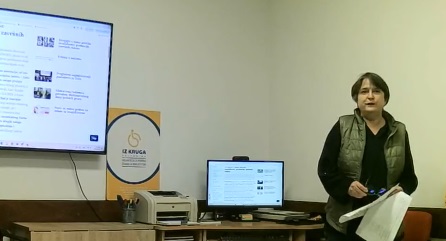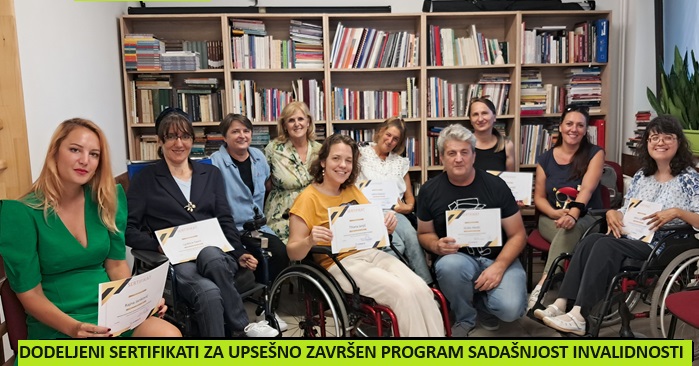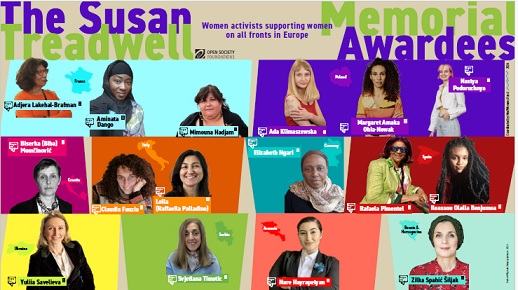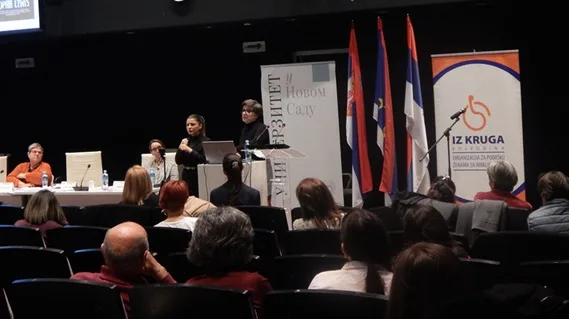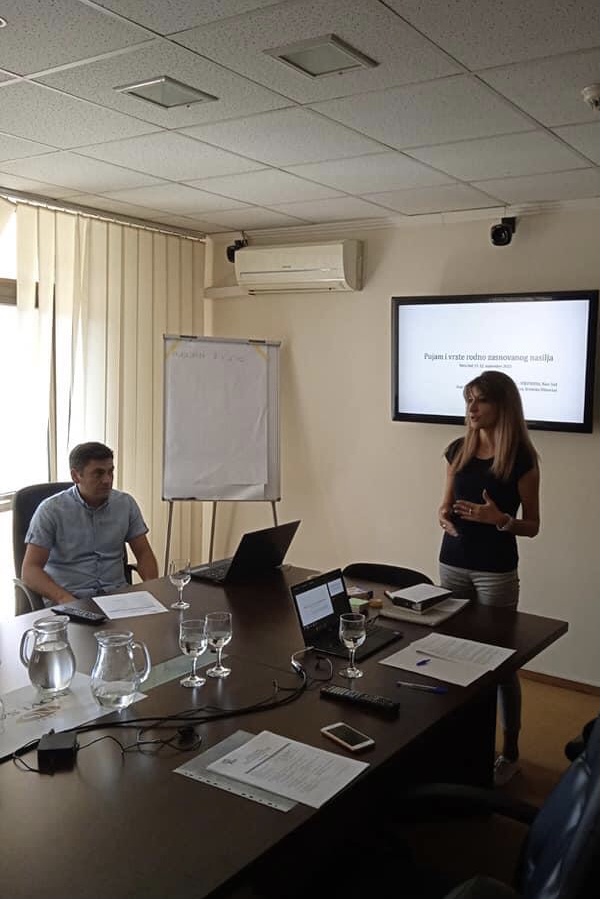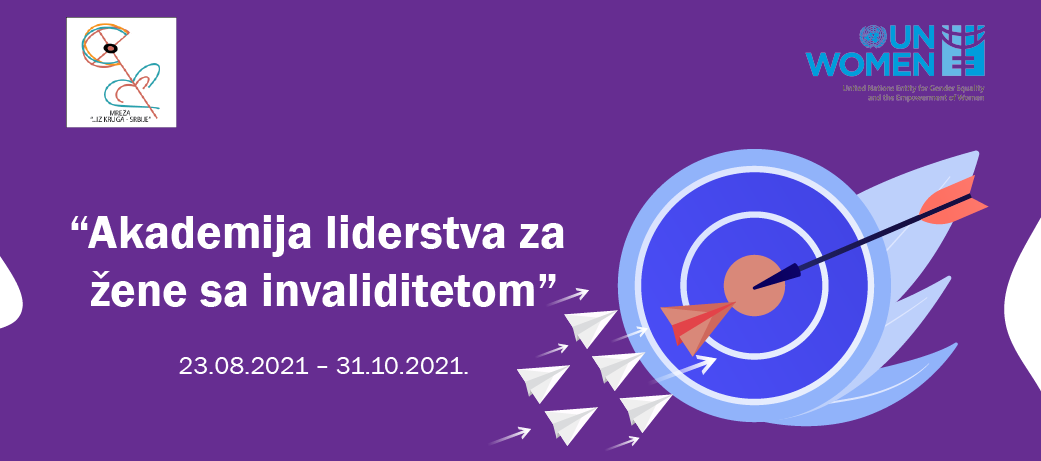Women living in partnerships full of violence often normalize it, justify the perpetrators, and take the blame for things happening. The situation of each woman is unique. There are no universal solutions faultlessly applicable to everything. Having said that, based on the experience of working in support services for women, they show the same patterns of behavior, recognizable dynamics of violent relationships, and standard sentence usage in situations of violence. Because of weakened self-esteem, feeling guilty and ashamed, it is not easy for women to look for help. Ofttimes, their immediate social circle does not show understanding of their situation. This happens not only because of the traditional beliefs that a woman should be quiet and endure everything that she was born to serve, follow, and subordinate herself to her stronger half, that love hurts, that any suffering makes sense because it leads toward enlightenment. It is also because of the arrogant conviction that it can never happen to you! If it happened, I would replicate, I would make his life a misery, I would leave him even if he were the last man on Earth. As for the women enduring violence, they must be enjoying it and need treatment for masochism. Maybe they are just stupid. The simple fact is that until you hadn’t experienced violence, you couldn’t have known how you would react. Additionally, it is least helpful to give lectures, make diagnoses or accusations to women living in violent situations. Simplified solutions like – Pack your things and go! Leave him! Get a divorce! – do not help either. Only the women in the situation of violence can decide on the way of getting out of it. Others can support her, or at least not make it worse. Instead of misunderstanding, how can we provide support to a friend, a sister, a close relative living in a situation of violence?
Ivana Zelic, a coordinator of the SOS service for women with disabilities of the organization …IZ KRUGA VOJVODINA, has some answers on typical situations any woman can find herself in, based on her experience working in the field for many years. If a friend complains about his temper in confidence or tells about his outburst, how can you differentiate between a harmless marital fight from violent behavior? What if you register violence, she does not or justifies? What will you tell her if she is depressed or isolated? If she feels guilty for everything – she did or didn’t do?
Some possible situations and typical statements of women living in violent situations follow. We enclose references on how to understand them and respond to their needs without judging, useless advice, and imposed decisions.
We fought, and he told me awful things. That I am a worthless slut, that he hasn’t trusted me for a long time, that he cannot bear dirty dishes and cold dinners anymore, that I only think of sex, and that I am a lousy mother… He lets go like that and leaves for the pub with his friends. I cried all night through. I know he doesn’t think that. People say things in anger. He is too tired working 16 hours a day – anyone would lose it at that pace.
Ivana Zelic: – Violent behavior is not a consequence of losing control or an outburst. Violence is not a one-time thing, it is a type of behavior people consciously choose and repeat. The goal of a violent partner is to gain power and control over a woman, humiliate her, undermine her confidence, and blame her for all the wrong things happening. Many men think that they own their women when they marry them or start living in a partnership. Often they blame the women for not corresponding to an image of their ideal woman. They see themselves as the head of the family, while women should fulfill expected roles: her place is in the house, she does the house chores, gives birth to children and takes care of them, is quiet, obeys, and works without question.
Another significant aspect is – where does he manifest his anger? Is he too tired and nervous when he talks to friends, neighbors, and colleagues? Would he speak with the same attitude to a boss at work because he is too tired and frustrated or, was home the only place he feels free to be violent and show power? Violence is always directed towards a particular person, most commonly women or children. Domestic violence / intimate partner violence does not stop on its own. It is a behavioral pattern, not an isolated incident.
There is no absolute harmony in marriage, all couples fight. Older women told me that the first few years of marriage are a disaster, and the easiest thing to do is divorce. We need time to gain a similar routine, to harmonize. Everything falls into place after a while.
Ivana Zelic: – When a couple is settling, both parties are equal – they make a joint effort to harmonize. A quarrel is an interchange of facts and opinions based on equality, meaning that a woman should express her disagreement without fear. Violence is not an exchange of views in a fair manner. It’s not a discussion nor a temporary misunderstanding. It is a situation where one party has more power and is in control (considered the head of a family, makes all vital decisions, controls the finances, is physically stronger, has social status). The other party involved is afraid to withstand, give an opinion, or do anything at all. Violence is a criminal offense often causing grave health, emotional, and social issues for an entire family. If you are not positive whether you are fighting or you are enduring violence, ask yourself the following questions:
- Do I feel fear?
- Do I feel helpless and weak?
- Do I feel under pressure?
- Do I have some physical or some other difficulties that have no medical explanation?
- How do I feel after that?
Whenever I go places without him, he makes me regret it. He calls three hundred times, asking: where am I, who with, what am I doing, when am I coming home. I am don’t know why, but I always answer the phone. I try to choose my words carefully but still make mistakes. I can see my friends when he visits his family, maybe next weekend. I understand him we do not spend much time together, a few hours in the evening when he is back from work. It is not fair not to be at home then.
Ivan Zelic: – Isolation is one way of control of the violent partner over the abused woman. The perception is often fogged since the bully justifies his bans and checks with care. Simultaneously he believes nobody is good enough for her, apart from him. A large number of violent partners are dependent on their relationships. They have a continuous fear of being left or cheated. That is why they keep a close eye on their partner and deny her independence. He wants her to depend on him because he depends on her. Still, we must not forget that everyone bears responsibility for their own life, fears, and the state they find themselves in. In time, the isolation intensifies, the woman gradually breaks friendly and family relations. When she decides to get out of the violent relationship, the support system does not exist anymore.
There is something in me that provokes him. I do not know what it is nor how to resolve it. What is wrong with me?
Ivana Zelic: – There is nothing wrong with you. Whatever feelings you are having; it is common in your situation. When the partnership is not functional, the woman takes responsibility. She feels she hasn’t lived up to expectations. For this reason, she is not asking for advice or help. She frequently believes that she somehow provoked violence with her actions or behavior. She thinks it is her fault, and she is the only one violence is happening. She may feel guilty for letting down her children and making them fatherless, for not living up to her family’s and society’s expectations. Guilty for the threat that the bully will kill himself because he cannot live without her and that she has ruined his life, and that he will send all their assets or leave work.
Do you think like this?
- It is my fault I deserved it.
- I often nag and do not know when to stop.
- There is a plethora of things I should be grateful to him.
- There must be a reason he acts like that.
It is significant to know:
- You did not provoke his behavior. No matter what you said or did, you did not deserve violence.
- It is not your fault.
- You do not deserve to feel bad because of someone.
Violence? No way! He would never hit me! He is a difficult person, but I know his better side too.
Ivana Zelic: – The dynamics of the violent behavior is such that a partner promises different things – to change from time to time, to look for help, promises that it would never happen again. He might partly acknowledge guilt (since the woman provoked him) and look for forgiveness. These are the moments when a woman starts to hope and believes that the change is possible since he does have good traits. Deep down, she thinks he is not violent, but the incident was just an unfortunate set of circumstances. Denial is a surviving strategy, but it leads to staying in a violent relationship for years. In time violence becomes more intense and frequent. Violence is not just physical and not just a punch – it is a much broader term: insulting, underestimating, cursing, degrading, all the things that cause fear.
Think over:
- What are the good and bad traits of your partner? What does prevail?
- How did you feel during the good times of your life?
- Towards whom does he manifest his good features? You or other people from your social circle?
- Are there quiet periods, and then the tension starts to grow? If yes, it is the violence happening in cycles, over and over again.
- It is material to consider what you would like to do and how you feel. You are the one that knows your situation best. Be honest about yourself – you are the expert for your own life.
- Imagine that a friend of yours is in that situation – what would you advise her?
- Your standard of living might deteriorate if you leave the partnership, but your psychological and physical health will be better.
- Congratulate yourself on each stepping stone.
- You can never be responsible for your partner’s behavior – there is no reason to feel shame.
When we fight, he says that I should be grateful that he is in a relationship with me and not brag about trifles. He humiliates me, but he is right. Men seldom want to be in a relationship with a woman with a disability.
Ivana Zelic: – Prejudice about violence against women is very strong, deeply rooted in everyday life, and strongly influences behavior. Prejudice about violence justifies violence itself and affects a woman’s reaction as well as the environment. One of them is that women with disabilities do not suffer domestic or partnership violence.
You have a right to say that something does not suit you. It is not complaining nor trifle. His humiliation and insulting are psychological violence. Your disability does not make you less worthy, nor is it the reason for someone to be violent. No women ask for being molested, hurt, or humiliated. Whatever your feelings are at the moment, it is normal. The important thing to know is that you do not have to change yourself for violence to stop. Sometimes it is difficult to maintain your self-confidence when nobody else believes you. Try to find at least one person that will support your decision to live life without violence. Do not believe you are what your partner thinks of you. Women experiencing violence have little in common: they are from different age groups, social backgrounds, their health, and the material situation is different. Any woman can experience violence. No woman provoked their partner to commit violence. Violence happens to abled women too. There is no right or wrong way to react to violence. Whatever you did in the situation, you did your best.
SOS service for women with and without disabilities
Specialized anonymous consultant service via telephone every workday from 9 to 16 hours
021447040
066447040 (call, Viber, SMS)
0800 101010
e-mail: office@izkrugavojvodina.org
Facebook: @izkrugavojvodina
The preparation of this media report is supported by UNDP within the project „Integrated Response to Violence against Women and girls in Serbia III“. Views expressed in the media report are solely the responsibility of …IZ KRUGA – VOJVODINA and do not necessarily reflect the views of UNDP nor the other participants of the implementation of the project.







